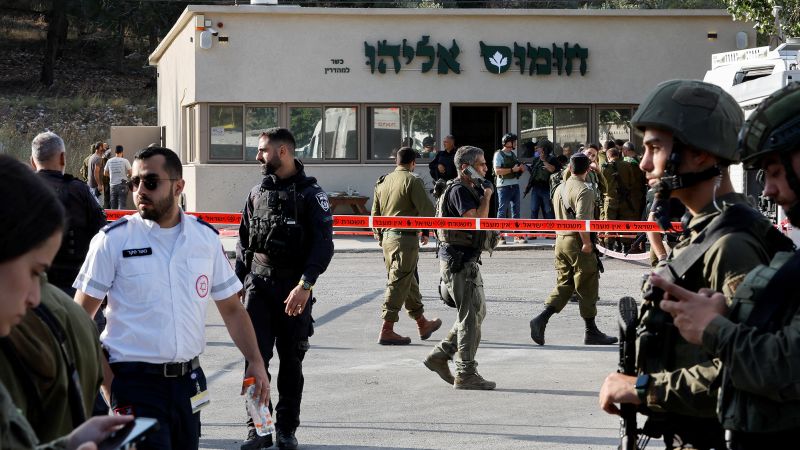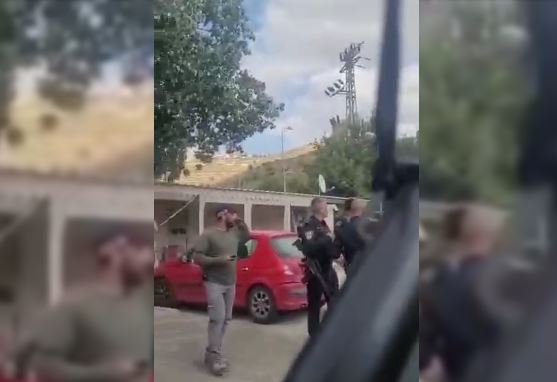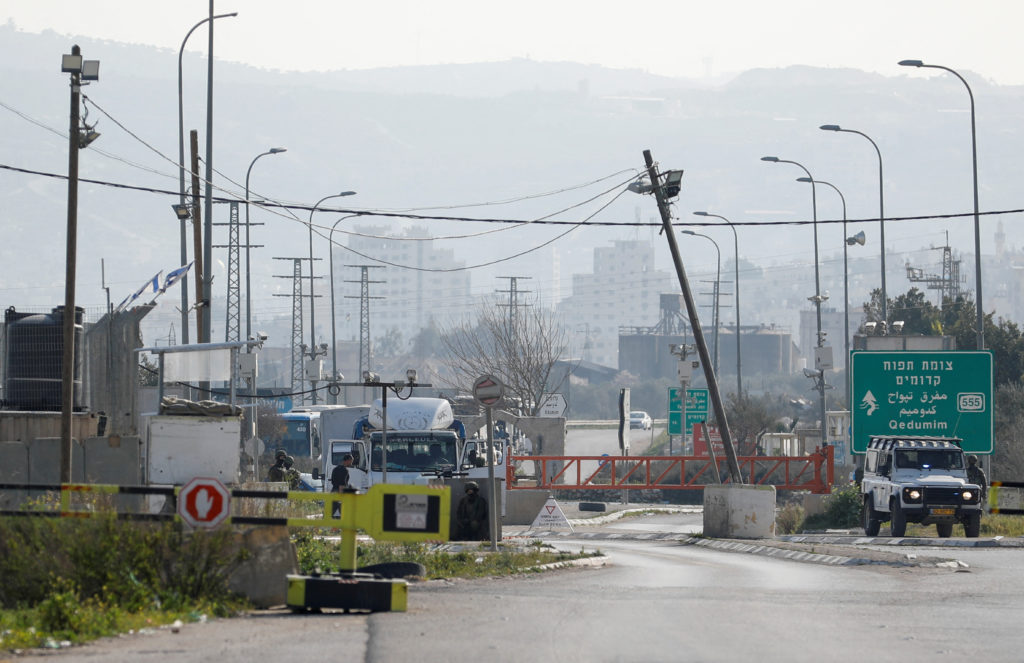Gunmen Kill Four Israelis Near West Bank Settlement
Gunmen infiltrated an Israeli settlement in the West Bank and killed four Israelis in a shooting near Hebron on Thursday. The Israeli military said it was hunting for the attackers and Israeli authorities shut down the West Bank. The attack took place in Har Hevron, a settlement in the southern West Bank; three others were wounded in the shooting.
The Timeline of Major Attacks on Israelis Since 2006

| Year | Attack Description |
|---|---|
| 2006 | Palestinian suicide bomber blows himself up at a sandwich stand near Tel Aviv’s old central bus station. At least 30 people are wounded. Islamic Jihad claims responsibility |
| 2007 | Suicide bomber kills three people in a bakery in Eilat at the northern tip of the Red Sea. Three groups — Islamic Jihad, al-Aqsa Martyrs Brigades and the previously unknown “Army of Believers” each claim responsibility. |
| Suicide bomber kills 11 people at a sandwich stand near Tel Aviv’s old central bus station. Both Islamic Jihad and Al Aqsa Martyrs Brigade claim responsibility. | |
| Suicide bomber kills four Israelis near the West Bank settlement of Kedumim. Al-Aqsa Martyrs Brigades claims responsibility. | |
| 2008 | Two Israelis killed at a fuel depot along the Gaza border. A number of militant groups including the Al-Aqsa Martyrs Brigades said they carried out the attack. |
| Suicide bomber kills one woman in the town of Dimona. A second bomber is shot dead by Israeli police. Hamas’s armed wing claims responsibility. | |
| Palestinian gunman kills eight Jewish students at the Mercaz Harav religious seminary in Jerusalem and wounds nine others before being shot dead by one of the students. | |
| 2010 | Four Israelis are shot dead near the Jewish settlement of Kiryat Arba in the West Bank. Hamas claims responsibility. |
| An anti-tank missile fired from the Gaza Strip hits a school bus, killing one boy. | |
| 2011 | Bomb explodes near a bus in downtown Jerusalem. At least 20 people are injured. |
| Five family members are stabbed to death as they sleep in their beds in the Jewish settlement of Itamar in the occupied West Bank. Israel says two Palestinians carried out the attack. | |
| At least seven people are killed when gunmen attack a number of vehicles in southern Israel near the border with Egypt, north of Eilat. |
The Reaction to the Attack

The Israeli authorities immediately declared the shooting a terrorist attack, and Israeli Prime Minister Benjamin Netanyahu issued a statement calling the shooting a “horrific attack” and pledging to bring the perpetrators to justice. He called on world leaders to condemn the attack and condemned the silence of those “who do not condemn terrorism” around the world.
Politicians
A number of Israeli politicians condemned the attack in the harshest possible terms. Education Minister Naftali Bennett said in a statement that “we will not give in to terror and we will fight it with all our might,” while Deputy Defense Minister Eli Ben-Dahan called for the Palestinian Authority to be held responsible for the attack. Meanwhile, the leader of the opposition, Isaac Herzog, warned that the attack could lead to “an energy of madness” that would make it harder to reach a peace agreement with the Palestinians.
The Palestinian Authority
The Palestinian Authority immediately condemned the attack as “a vicious crime,” and called for calm in the aftermath of the shooting. Palestinian President Mahmoud Abbas issued a statement calling on the Israeli government to “bear their responsibility for the continuation of this dangerous escalation,” and warning that “this cannot be taken as an excuse for aggression against our people and our land.”
The Response of the International Community
The shooting was immediately condemned by the international community, with the United Nations, the United States, and the European Union all issuing statements condemning the terrorist attack and calling for calm in the region. UN Secretary-General Ban Ki-moon called the attack “despicable,” while US President Barack Obama issued a statement declaring that “there is no justification for violence against innocents.” European Union foreign policy chief Federica Mogherini also issued a statement condemning “this appalling act of terrorism.”
Conclusion

The attack in Har Hevron is a grim reminder of the ongoing tensions in the region and the need for a peaceful solution to the Israeli-Palestinian conflict. It is important that leaders on both sides work to prevent further violence and find a way to resolve the issue through diplomatic means rather than resorting to violence and terrorism.
FAQ

What is the Israeli-Palestinian conflict?
The Israeli-Palestinian conflict is a long-standing dispute over the territory of Israel and the establishment of a Palestinian state. The conflict has been ongoing for decades and has resulted in numerous acts of violence and terrorist attacks.
Who is responsible for the recent attacks in the region?
There have been a number of recent attacks in the region, and it is difficult to attribute responsibility to any one group or individual. However, many of the attacks have been carried out by Palestinian extremists who are opposed to the existence of Israel.
What is the role of the international community in the conflict?
The international community has been actively involved in trying to find a peaceful solution to the conflict, providing humanitarian aid to the region, and condemning acts of violence and terrorism carried out by either side. However, the conflict has proven to be extremely complex, and a peaceful resolution has remained elusive.
What are some possible solutions to the conflict?
There are many proposals for how to resolve the Israeli-Palestinian conflict, including the establishment of a two-state solution, in which Israel and Palestine exist as separate, independent states. Another proposal is a one-state solution, in which Israel and Palestine exist as a single, shared state. However, finding a solution that is acceptable to both sides has proven to be extremely difficult.
What is the current situation in the region?
The situation in the region remains tense, with ongoing violence and instability. However, there are also signs of hope, with recent efforts to restart peace talks and build greater trust between Israel and Palestine.

